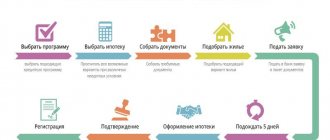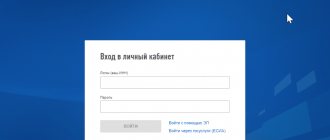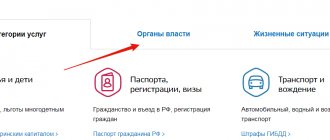According to the Bank of Russia, the housing market now has the lowest mortgage rates. There are more and more people wanting to buy housing with a mortgage - the amount of approved loans per month as of August 1, 2021 has already exceeded 430 million rubles. Real estate sellers must be prepared for buyers to take out a mortgage on their home. We will provide step-by-step instructions for selling an apartment on your own with a mortgage.
Features of the procedure
There are people who specifically monitor offers for the sale of collateral real estate: in this way they invest funds. All current lots are published on the resource “Official website of the Russian Federation for posting information about bidding”. Are you interested in buying apartments as collateral from the bank? We tell you how to take part:
- Register and confirm the availability of funds with an account statement.
- Deposit a cash guarantee (about 200 thousand rubles). It is subsequently returned to those who did not win.
- After winning, within a month, pay for the lot in full and register ownership of the home.
The auction is held even when one person participates in it - these are the rules.
Real stories about buying a pawn car
Alexander Makarov, auto expert:
“The pledgor can take back the car if the pledgor stops fulfilling his payment obligations. The situation is serious - the new owner in this case risks being left without everything. And there are plenty of examples. A friend of mine had a case. He bought a car for 450 thousand rubles and became its third owner. I didn't check the car when I bought it. A year later, bailiffs showed up and explained that the car was the property of the bank. The first owner stopped paying the loan, and the bailiffs decided to take the car. A friend had to pay someone else’s debt of 200 thousand rubles in order to keep his car. Later it turned out that the previous owner did not even know that the vehicle was pledged.”
FAQ
How long does it take to register to participate in an auction for the sale of apartments by banks?
An application for registration and accreditation on the electronic trading platform is considered up to 5 days.
How much is the advance and when will it be returned?
The advance payment amount is 2-10% of the initial price of the lot. If you lose, the advance will be returned within 5 days, and if you lose, it will be included in the price of the purchase.
What happens if I win an item, but refuse it upon payment?
In this case, the advance payment will not be returned.
Lada in a bank
The lawsuit in the Krasnodar district court looked quite routine - the bank asked to collect from its client a debt on a car loan in the amount of 1 million 108 thousand rubles. The lawsuit stated that the client took 480 thousand rubles from the bank to purchase a Lada Priora and did not repay the debt. As a result, a few years later the bank demanded the money back with interest and the car from the unscrupulous client in order to sell it at auction. Another citizen was brought to court as a “third party” - the current owner of Priora.
By the decision of the Pervomaisky District Court of Krasnodar, the bank’s claim was partially satisfied - 910,396 rubles were recovered from the unscrupulous client in favor of the bank. For the rest, the request to take the car away from the new owner was denied. The Krasnodar Regional Court overturned the decision of the district colleagues in the part where it was said about the car. According to the new decision, the car was taken away for sale at auction.
Now the new owner of Priora has filed a complaint against this decision. In his opinion, the decision of the regional court is illegal.
This is how the Supreme Court reviewed this dispute. A certain citizen took out a loan for a car from a bank. On the same day, he signed a pledge agreement with the bank for a new car. That is, the car became the property of the bank until the final repayment of the loan. But the borrower did not repay the loan and sold the car three years later.
The district court, when making its decision, said that the new owner was a bona fide purchaser, and the bank itself was actually to blame, since “it had the opportunity to provide information about the pledge to the register of pledge notifications, but did not do so.”
The regional court, when overturning the district court's decision, stated that the collateral agreement with the bank was concluded on April 22, 2014. And the rules for registering and accounting for collateral began to work on July 1, 2014. Therefore, the district court was wrong when it refused to take the car from the new owner.
This is the “Priora” our hero almost lost.
But the Supreme Court of the Russian Federation did not agree with this conclusion of the appeal. He began his explanations with the Civil Code, where two articles are devoted to bail - 346 and 352.
It states that the pledgee is obliged to compensate for losses if he disposes of the pledged property without the consent of the pledgor. But it also says that “the pledge is terminated if the pledged property is acquired for compensation by a person who did not know and should not have known that this property is the subject of the pledge.”
The clause of the law that states this came into force on July 1, 2014. For transactions that took place before this date, the previous legislation applies.
There is Article 339 in the Civil Code. It introduced legal regulation “providing for accounting for the pledge of movable property by registering notifications of its pledge in the register of notifications of the unified information system of the notary and defining the procedure for maintaining such a register.” Based on this article, the pledgee, in relations with “third parties,” has the right to refer to his right of pledge “only from the moment the record of recording the pledge is made.” An exception to this rule is if the “third party” should have known about the existence of the pledge before this moment. In our case, the new owner of the Priora stated that he did not know about the car being pledged. After all, upon purchase, the seller provided him with the original PTS. And before buying, he checked the car against the register of notices of pledge of movable property, and this car was not there.
The district court found that Priora became the property of our hero in the spring of 2021. And there is no evidence in the case that he is an “unscrupulous purchaser of mortgaged property.” Therefore, the court, based on Article 352 of the Civil Code, came to the conclusion that the pledge of the vehicle should be terminated. The regional court, as the Supreme Court emphasized, “erroneously assumed that the pledge agreement was signed in April 2014, that is, before July 1, 2014. That is, it is not subject to the rules for registration and accounting of collateral, which were introduced by Article 339 of the Civil Code.”
The conclusion of the Supreme Court: “the non-application of the rules of law to be applied by the judicial panel for civil cases of the Krasnodar Regional Court resulted in the issuance of a decision that did not meet the requirements of Article 195 of the Civil Procedure Code of the Russian Federation.” The result is that the decision of the regional court was overturned, the decision of the district court was upheld.
What happens if you buy a mortgaged car?
Vitaly Zaikov, expert, director of the Old City car pawnshop:
“It all depends on the situation when the car was purchased as collateral. If the new owner, during the purchase and sale transaction, obtains from a lawyer an extract from the pledge register, which will indicate that the pledge has not been registered, then the buyer may be recognized by the court as being in good faith. Depends on whether the seller has a duplicate PTS or not, and how long ago it was received. If, at the time of signing the purchase and sale agreement, the pledge was noted in the register, the buyer had the opportunity to check it, but did not check it, the purchase of a pledged car does not meet the requirements of good faith, so there is no reason to remove financial responsibility. The car will be seized.
Although the register of pledges is in the public domain, you can say in court that I went to the site and at that time there was no pledge. In judicial practice, it is customary for the buyer to “walk with his feet” to the notary and take an extract, then his actions indicate good faith.
So if the car turns out to be collateral, you need to prepare for the trial in any case. Therefore, an extract from the register of pledges is the main evidence.
When buying a car second-hand, always check it using open sources: the traffic police and the notary’s pledge database. The seller should be checked against the bailiff service; sometimes he has a “credit” debt, which should alert you. Or there may be a fine of 500 rubles, due to which the bailiffs will impose restrictions, so the car will not be re-registered by the traffic police and the issue will have to be resolved with the bailiffs.”
How the auction works
Having chosen how to buy a mortgaged apartment, it is worth finding out how participation in the auction takes place. There are a few features you've probably never heard of before.
The organizers place a press release about future public auctions in periodicals, which are official information sources of executive authorities in the relevant constituent entity of Russia. This information must be published no earlier than 2 months, but no later than 1 month before the date of the auction. The press release contains all the necessary information: when, what time and where the event will take place. The advertisement also includes a description of the property offered for sale and the starting selling price.
When might a trade fail? For two reasons, which serve as grounds for declaring the auction invalid: if there are no people willing to offer the initial price, or if less than 2 people applied for the auction.
After a failed event, a repeat event will be organized in 1 month. The value of unsold property will be reduced by 15%. If you are buying apartments that were obtained for bank debts only as an investment and want to purchase them at the lowest possible price, simply do not participate in the first auction. If a replay is announced, you will definitely benefit in price. Remember that you cannot inspect the premises before bidding, so you will practically be buying a “pig in a poke.”
To become a bidder you will need:
- scanned copies of all passport pages,
- electronic digital signature (EDS),
- notarized consent of the spouse to complete the transaction (if there is a registered marriage).
An electronic digital signature is required to complete an application for participation, since its function is to give the passport, application and other documents legal force. An electronic signature is the same as a regular signature, but in electronic form on a USB flash drive. An electronic signature is produced and issued by authorized certification centers. To obtain an electronic signature, you need to send an application, passport, insurance certificate, and TIN. Registration is paid, the cost is around 1000 - 3500 rubles. The final stage of registration will be the activation of the signature according to the instructions, as well as the installation of a cryptographic information protection system.










